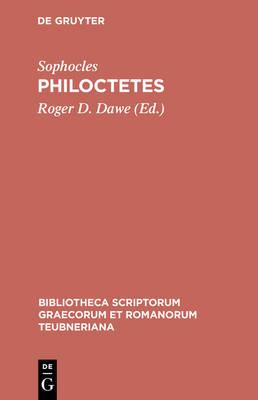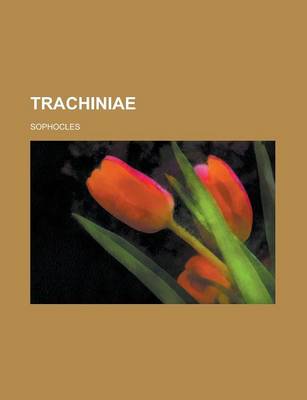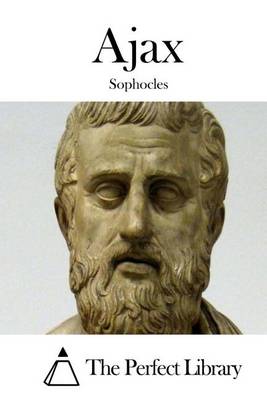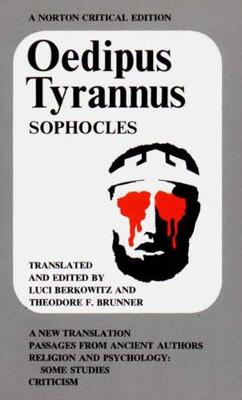Classic Commentaries on Latin & Greek Texts S.
7 total works
A muscular version of Sophocles' timeless masterpiece, offering a profound reflection on the nature of power, democracy and human rights.
The war has ended, but with peace comes conflict. Antigone's brother Polyneices lies on the battlefield where he fell, his burial outlawed by Creon, the new king of Thebes. Should Antigone obey Creon, or must she follow her conscience and lay her beloved brother to rest?
full stage directions, and a glossary of the mythical and geographical references in the play.
En route to fight the Trojan War, the Greek army has abandoned Philoctetes, after the smell of his festering wound made it unbearable to keep him on ship. Ten years later, an oracle makes it clear that the war cannot be won without the assistance of Philoctetes and his famous bow, inherited from Hercules himself. Philoctetes focuses on the attempt of the heroes Odysseus and Neoptolemus to persuade the bowman to sail with them to Troy. First, though, they must assuage his bitterness
over having been abandoned, then win his trust. But how should they do this-through trickery, or with the truth? To what extent do the ends justify the means? To what degree should private interest be compromised for the sake of public duty? These are among the questions that Sophocles puts forward in this, one
of his most morally complex and penetrating plays.
Two decades later a twist of fate brings Brother and Sister together; united by hate but divided by faith. With the country on the brink of civil war, the most powerful family in the Kingdom are torn apart from the inside as their dark past once again becomes the present.
The revolution will be televised, but are The Gods watching?
DumbWise reinvent the murderous Greek myth of power and prophecy as a lyrical modern epic with a live punk-rock score.
Over the years, the play has suffered sustained criticism because of the difficulties it presents of reconciling the plot, language, and characterization with Sophocles' other works. Recently, however, much work has been done to achieve a better understanding of the play in isolation and to increase modern regard for it.
In a thought-provoking introduction, Dr Davies discusses the merits of the play, the question of its unity, its treatment of the hero Heracles, the story's pre-sophoclean tradition, and the evidence of contemporary art. In the commentary itself he discusses textual problems that arise from a frequently corrupt and uncertain text, as well as wider issues of interpretation. the text which is reproduced and presupposed in the commentary is the recently established Oxford Classical Text of
Lloyd-Jones and Wilson
Sophocles' Ajax is one of the most disturbing and powerful
surviving ancient tragedies. But it is also difficult to understand and
interpret. What are we to make of its protagonist's extremism? Does Ajax
deserve the isolation and divine punishment he experiences? Why is his
state of mind so difficult to determine? Dr Hesk offers answers to these
and many other questions by drawing together the very latest critical
work on the play and introducing the reader to key frames for its
interpretation, including Sophoclean heroism, language and form; Homeric
intertextuality and Athens' 'masculinist' culture, and the
twentieth-century reception of Ajax.
"Passages from Ancient Authors" includes selections from Homer's Odyssey, Thucydides' account of the plague, and Euripedes' Phoenissae.
The best of ancient and modern criticism is represented, encouraging discussion from psychological, religious, anthropological, dramatic, and literary perspectives.
Under the heading "Religion and Psychology" are included writings on the Oedipus myth by Martin P. Nilsson, Meyer Fortes, Gordon M. Kirkwood, Thalia Phillies Feldman, and Sigmund Freud.
The authors of the selections in "Criticism" are Aristotle, C. M. Bowra, R. C. Jebb, S. M. Adams, A. J. A. Waldock, Albin Lesky, Werner Jaeger, Friedrich Nietzsche, John Jones, D. W. Lucas, Bernard M. W. Knox, Cedric H. Whitman, Richmond Lattimore, Robert Cohen, Francis Fergusson, and H. D. F. Kitto.
The special question of Oedipus's guilt or innocence is addressed in essays by J. T. Sheppard, Laszlo Versenyi, P. H. Vellacott, E. R. Dodds, Thomas Gould, and Philip Wheelwright.





